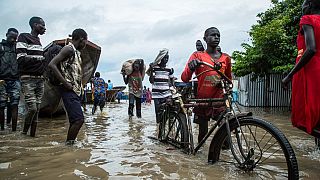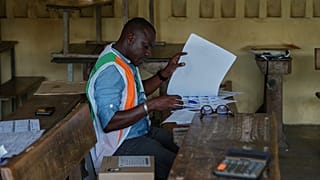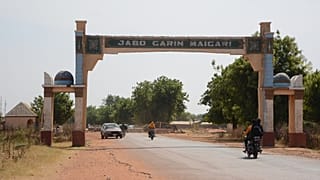Business Africa
Nearly 12 years after its independence, South Sudan, which holds the third largest oil reserves in sub-Saharan Africa, is unable to feed more than 7 million of its people who live on humanitarian aid.
Because of corruption and years of instability, the country only benefits from forty-five thousand barrels out of an annual production of about 150 000 to 170 000 barrels.
To get more on that, I am joined by Dr. Peter Biar Ajak from the Belfer Center for Science and International Affairs at Harvard University.
Benin ramps up volumes of locally processed cotton
In 2022, three cotton processing plants opened in the textile park of Glodjigbé near Benin’s capital. Since then, 40,000 tons of seeds have been processed, representing 12% of the national production.
Leaf vegetable culture gains momentum in Kenya
The East African country has been hit by the worst drought in 40 years and by four consecutive failed rainy seasons. Farmers most affected by these climatic conditions have decided to turn to ancient vegetables, which are more profitable.





![Europe, Africa struggle to implement summit pledges [Business Africa]](https://static.euronews.com/articles/stories/07/30/48/06/320x180_cmsv2_39e0a624-20e7-53ee-a808-aff99d77655d-7304806.jpg)






11:18
Making Africa’s Creative Sector Bankable {Business Africa}
Go to video
Kenyans protest after roaming elephants kill 4 people in a week
Go to video
Somalis vote in the first one-person, one-vote local election in decades
Go to video
Five dead in Mount Kilimanjaro helicopter crash
01:13
Gunmen abduct 28 travellers heading to Islamic event in central Nigeria
Go to video
Ghana distances itself from ‘Detty December’ label despite tourism boom